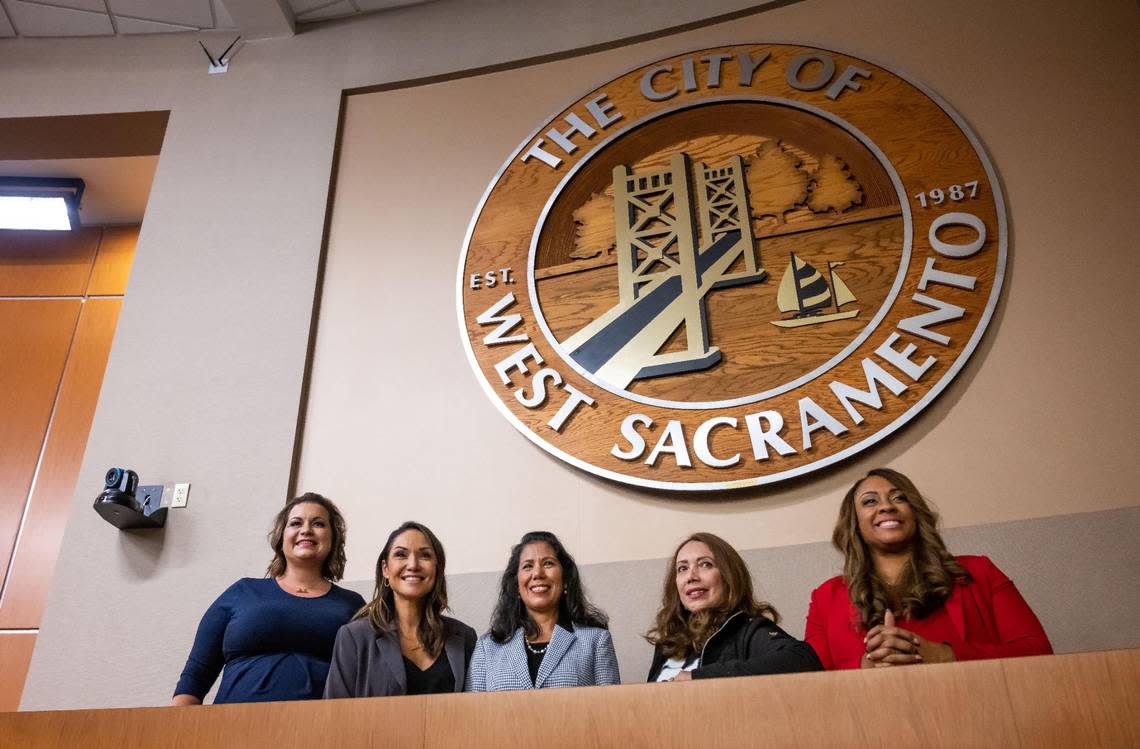West Sacramento to replace neighborhood streets named after Native American slur

West Sacramento is changing the name of a pair of neighborhood streets to replace their current name, which is a racist slur against Native American women. The current roadways are “Squaw Road” and an offshoot, “Squaw Court.”
The new names will be “Tebti Road” and “Tebti Court,” which were suggested to West Sacramento by the Yocha Dehe Wintun Nation. Tebti is a Patwin word and blessing, translating to the streams that flow together. This is in reference to the Sacramento and American rivers, which have their confluence in West Sacramento.
On Wednesday, the city council voted to rename the street after the Patwin word. Next, the name is being submitted to the California Advisory Committee on Geographic Names for approval, said Paul Hosley, the city’s public information officer.
“This name is a blessing. It’s a blessing for our city, it’s a blessing from the sovereign nation to the city of West Sacramento,” said Dawnté Early, West Sacramento’s mayor pro tem, during the council meeting. “This name holds a very special meaning to their tribe.”
The name change will affect 42 residents in West Sacramento who live on the roadways. When doing neighborhood outreach, mayor Martha Guerrero found there were “very split” opinions.
Some residents were supportive. Others voiced opposition to the new name, expressing concern about issues with changing their address on documents. Residents also expressed difficulty with pronouncing the name.
Jon Robinson, West Sacramento’s deputy city manager, said the name Tebti is easy to pronounce. Its phonetic pronunciation is “teb-tee,” and it is a “five-letter, two-syllable word that is shorter than the existing street name in West Sacramento,” Robinson said.
“(Tebti) takes a street name that was a racist and sexist slur and turns it into a homage to people who have inhabited the land for centuries,” Robinson said.
The slur is considered offensive and derogatory to and against Native people. The word was used as a colonial term to dehumanize and demean Native women in the United States and Canada. Its origins, and use of the term, are connected to racist and misogynistic depictions of Native women, according to the University of Idaho Library.
This name change is in response to a resident who urged the name be changed, Hosley said. The change has also been promoted by a 2022 law which requires the removal of the slur from all geographical features and place names in California. Assemblymember James Ramos, D-San Bernardino, who co-authored the law when it was Assembly Bill 2022, said the word’s origins are colonial.
“It is an idiom that came into use during the westward expansion of America, and it is not a tribal word,” said Ramos, who is Cahuilla and Serrano, in a news release. “For decades, Native Americans have argued against the designation’s use because behind that expression is the disparagement of Native women that contributes to the crisis of Missing and Murdered people in our community.”
Guerrero said this name change is also a step forward to repairing harms to local Native nations. She added that she hopes the city of West Sacramento can work with the Yocha Dehe Wintun Nation more in the future.
“The state law requires an inclusion, and that’s to repair the harms among the Native Americans that have incurred upon them,” Guerrero said.

